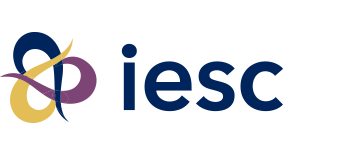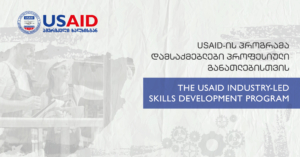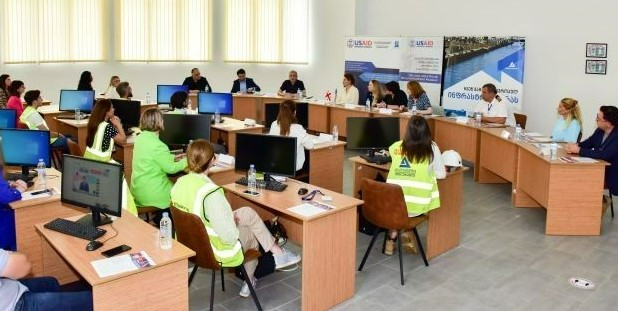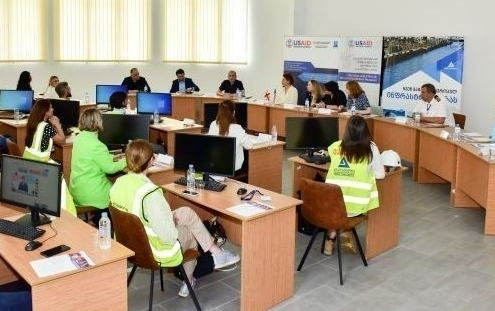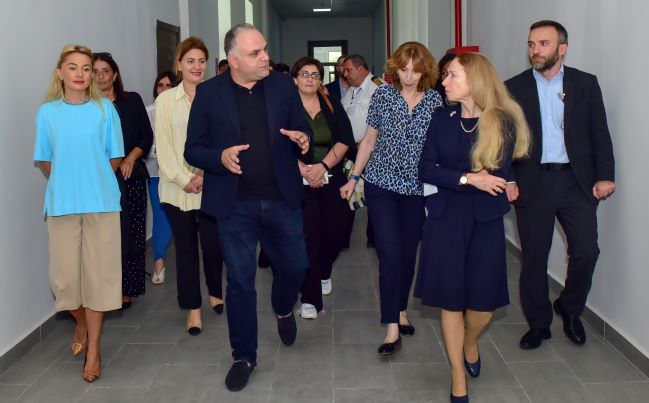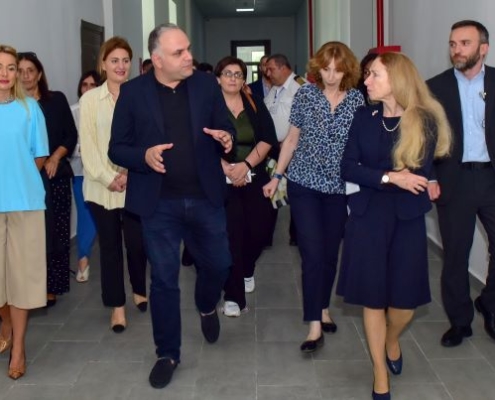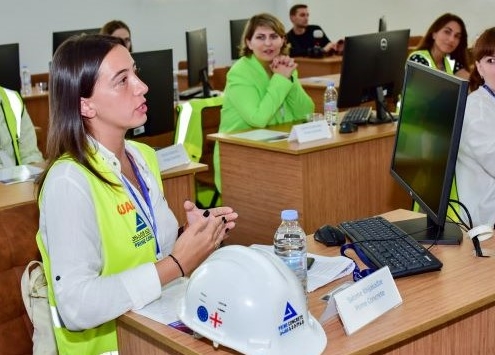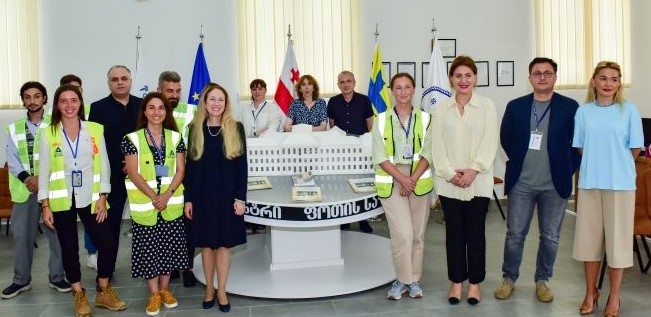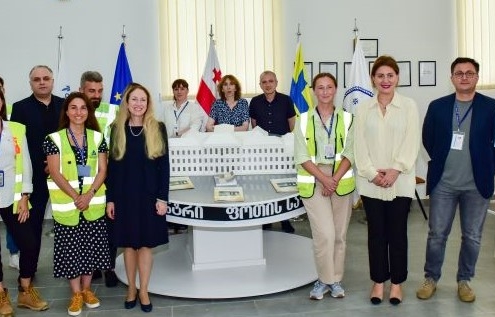USAID Industry-led Skills Development Program
BUILDING A PATHWAY BETWEEN SKILLS TRAINING AND HIGH-VALUE EMPLOYMENT OPPORTUNITIES
Request for Concept Papers: Increasing Access to Training Opportunities for Rural and Priority Populations
The United States Agency for International Development (USAID) Industry-led Skills Development Program is a new five-year initiative designed to partner with the private sector to produce industry-relevant human capital that will contribute to high-value employment opportunities and increased economic competitiveness in Georgia. Implemented by the International Executive Service Corps (IESC), the Program will achieve this by systematically engaging employers to equip Georgians with skills demanded in sectors with high growth potential and through the creation and replication of direct linkages between training programs and employment opportunities.
The Program will prioritize interventions under three components:
- Component 1: Incentivize private sector engagement in skills development
- Component 2: Establish short- and long-term skills training programs demanded by the private sector
- Component 3: Increase access to training opportunities for rural and priority populations.
The United States Agency for International Development (USAID) Industry-led Skills Development Program (the Program) is seeking concept papers from eligible organizations to increase access to training opportunities for rural and priority populations that contribute to high-value economic activities. You are invited to submit a concept paper to the Program’s Increasing Access to Training Opportunities for Rural and Priority Populations initiative in accordance with the terms of reference contained herein. The concept paper is a precursor to the full grant application. Selected applicants will be invited to submit full grant applications.
Concept papers should be submitted in electronic form to skillsgrants@iesc.org. All concept papers should reference RFCP No. 012-C3-003-2023 and must be submitted in English. Concept papers are due no later than April 14, 2023, 18:00 Georgia Standard Time (UTC/GMT +4). Late or unresponsive submissions will not be considered.
To make information on grants accessible to all interested stakeholders, the Program plans to hold pre-submission workshops and information sessions in accordance with the schedule presented in the RFCP document. This workshops will give eligible and interested applicants the chance to ask questions about the RFCP process and receive guidance on how to submit concept papers. Applicants may also send questions about the concept paper process to skillsgrants@iesc.org through April 5, 2023. All answers to questions asked at the pre-submission workshop and/or through the e-mail will be posted to the Program’s Facebook and web page no later than April 7, 2023.
- Program’s Facebook Page – https://www.facebook.com/USAIDSkillsProgram
- Program’s Web Page – https://iesc.org/program/usaid-industry-led-skills-development/
For further details on the Program and application process, please refer to the attached documents.
Approach
The Program’s approach is to engage a broad stakeholder base to leverage private and public investment into skills training programs and increase high-value employment opportunities for Georgian citizens. The Program will engage with local and foreign business associations, national and international investment organizations, corporations, Chambers of Commerce, and critical public sector stakeholders in order to closely monitor and respond to ongoing and planned changes in labor market needs.
Central to achievement of results under the Program is an innovative approach to competitive grants, which will allow the Program to respond to gaps in the supply of skilled workers to meet high-growth industry needs, as well as address the needs of priority populations such as youth, women, rural populations, ethnic minorities, and students with disabilities. The grants will be performance and milestone based and will mobilize cost-share from grantees, and other investors, while utilizing a Pay-for-Results incentive, as appropriate, to reward innovation, job placement, and inclusion of underserved populations. The cost-share requirement will ensure grantee buy-in, while accreditation and certification efforts will ensure the sustainability of programs. At the sector level, the Program will leave behind a network of training providers with scalable and replicable partnership models for private sector engagement in skills development.
Check out the Program’s newsletters:
Summary
The USAID Industry-led Skills Development Program is a five-year initiative designed to create pathways between skills training and high-value employment opportunities, empowering Georgians to reduce unemployment and catalyze sustainable economic growth across the country. The Program will incentivize businesses in high growth industries to systematically engage in innovative skills development, while engaging skills training providers to implement high quality training programs aligned with labor market demand and extend access to their offerings throughout Georgia. Training programs will target underrepresented members of society, including residents of rural communities, women, and ethnic minorities.
Check out the most recent program newsletter here.
Program Details
Funder: USAID
Project Duration: 2021-2026
Award: $24 million
Subcontractor: The Center for Training and Consultancy, a leading Georgian NGO supporting the strengthening of human and organizational capabilities.
The Program will also work closely with the Ministry of Education and Science, Ministry of Economy and Sustainable Development, Ministry of Internally Displaced Persons from the Occupied Territories, Health, Labor and Social Affairs and agencies, like National Skills Agency to monitor labor market and skills supply developments.
Expected Results
The Program anticipates benefitting 4,800 individuals who will complete workforce programs, with at least 3,840 receiving new or better employment. The Program will incentivize 30 businesses to develop long-term partnerships with training providers, mobilize $6.99 million in cost-share from both private and public sectors, and ensure that 35% of trainees are from rural areas and ethnic minorities and at least 45% are women.
Components
The program will prioritize interventions under three components:
- Incentivize private sector engagement in skills development.
- Establish short- and long-term skills training programs demanded by the private sector.
- Increase access to training opportunities for rural and priority populations.
